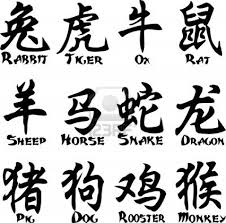In my mid-December blog on the new Junior Cycle I stated
that the National Council for Curriculum and Assessment (NCCA) was a 'wonderful
new organisation grown out of the Department of Education and Skills'. All true
but in fact the NCCA was set up in 1984 (not recently) initially known as the
Curriculum and Examinations Board (CEB) and has been the driver of educational
reform at Primary and Second Level since then.
The first Chairperson of the CEB in 1984 appointed by
Minister Gemma Hussey was Dr Edward Walsh then President of NIHE Limerick. The
Board of the CEB was representative of parents, teachers, IBEC and school
managers.
Its first Chief Executive was Albert O'Ceallaigh and
Assistant CE was Gary Granville (now Head of Education at National College of
Art and Design). Both inspired choices obviously especially Granville who
taught Art in Dublin schools and worked in the Curriculum Development Unit (CDU) established to support teachers by
CDVEC, TCD and Dept of Education.
When the new National Council for Curriculum and
Assessment was launched by Minister Mary O'Rourke in 1987 its first task was
to transform what was then the Intermediate Certificate into the Junior
Certificate with new and revised syllabuses and at two levels for differing
abilities. The new Junior Certificate was launched in 1988 and all students sat
the new exam for the first time in 1992.
The Minister also charged the NCCA to oversee the
completion of the review of the primary school curriculum which was published
in 1999. This curriculum, which contained an infant curriculum for children aged
4 to 6, was based on the latest thinking and research on how children learn
and how that learning can be supported optimally for each child through
skilled, sensitive and informed involvement by the teacher. This document
formed part of the National Children's Strategy: 'Our Children - Their Lives'
launched in 2000 by the National Children's Office.
 |
| Courtesy of www.course4u.ie |
The NCCA became a statutory body in 2001 under Minister
for Education and Science Michael Woods with more widespread educational and
industrial representation on its Board. A new Chief Executive Anne Looney
formerly a full time education officer in NCCA took over from Albert
O'Ceallaigh.
In 2003, another review commenced of Primary Education
which led to 'Towards a New Framework for Early Learning' published in 2004.
This looked for the first time at learning from birth to 6 years of age. This
led to 'Aistear: the Early Childhood Curriculum Framework' which deals with the
pre-school period from birth to 6 years. The word Aistear is the Irish for
'journey' and was chosen because early childhood marks the beginning of
children's lifelong learning journeys.
 |
| Courtesy of www.education.ie |
In 2005 NCCA addressed making the senior cycle more
understandable to parents with a new DVD and other aids. In 2006, the challenge of multi-racialism was addressed as
were new Guidelines for Exceptionally Able Students. In 2006 Professor Tom
Collins Professor of Education in Maynooth College became NCCA Chairman and is
currently in that position as is Anne Looney as CEO.
That brings us to 2008/2009 with the emphasis and
leadership on the new Project Maths syllabus with which many engineers are
familiar. This new more practical approach to Maths is best illustrated through
practical problem solving in the engineering world.
Beginning on a phased basis in September 2014, the new
Junior Cycle will feature revised subjects and short courses its main a focus
is on literacy, numeracy and key skills together new approaches of assessment
and reporting. Schools will have more freedom to design junior cycle programmes
that meet the learning needs of all students. For students, the new Junior Cycle will mean that the curriculum available in their schools will be a mix of
core subjects and short courses in topics like Art Computing and Chinese.
 |
| Courtesy of 123rf.com |
The new Junior Certificate will be known as the Junior
Cycle Student Award (JCSA).
All in all, when you look back on the many positive
achievements, the students, teachers, parents and all stakeholders in the Irish
education system have a lot to be grateful to the NCCA who have transformed and
are still transforming pre-school, primary and secondary level education in this
country.




